Sometimes running can be a process of self-discovery. I didn’t know how profound this self-discovery could be until I finished my first self-directed, solo self-supported 200km run through the Boreal Forest of Northern Alberta, Canada.
I had been training to run the 350mile Iditarod Trail Invitational, a self-supported winter endurance race in Alaska, when COVID hit.
Undeterred, I decided I could still experience a self-supported winter ultra if I was open to the idea of coming up with my own race. Living in Northern Alberta at least made the conditions accommodating, and training through the winter would keep me focused on something other than COVID.
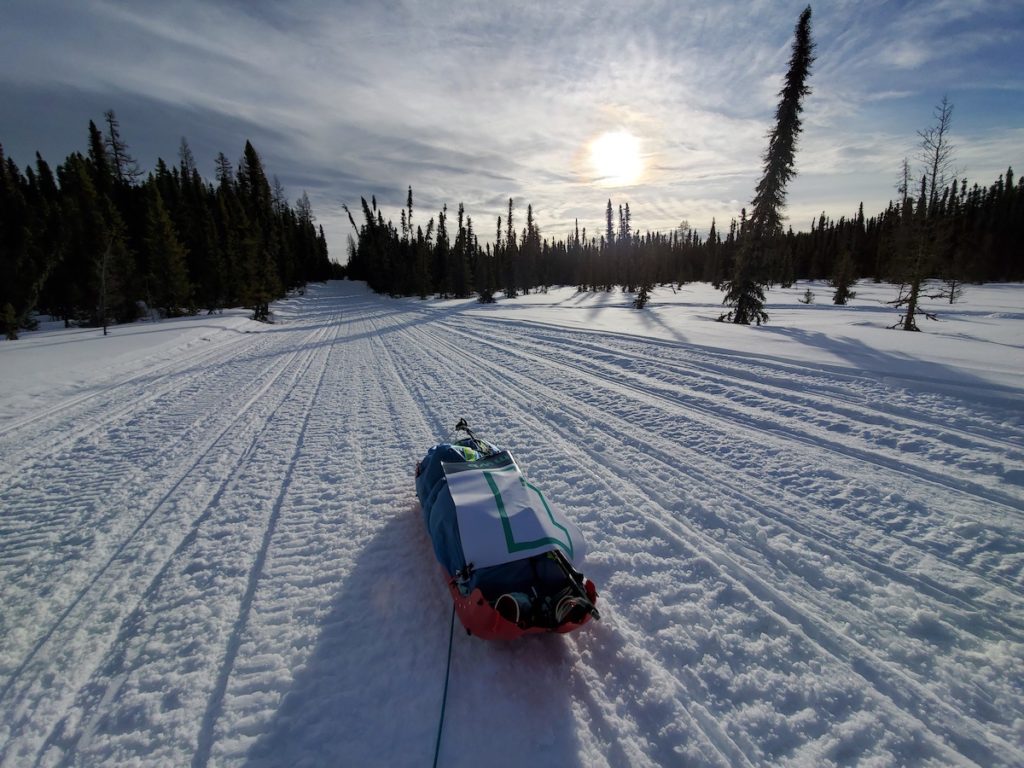
I trained for months, slowly building up from pulling a weighted cart, to a tire, and then eventually when the seasons changed, a sled. I learned to carry everything I needed with me and not rely on pit stops or “aid stations” to fill up water or resupply food.
I taught myself to be my own crew: to keep my fueling and hydration efficient enough and watch closely for the signs of fatigue.
My plan was to complete the ultra over four days. I slowly increased my distance, from 30km to 45km and eventually to 70km, all solo and deep in the backwoods. On the coldest of nights, I could be found shoveling a campsite, pitching my tent, melting snow, and practicing my morning routines.
Leading up to final departure, I oscillated between moments of confidence and moments of high anxiety. I had never organized anything like this before, if I turned out to be the worst race director in history, I would only have myself to blame. I felt so much pressure to get it right, especially since my message revolved around finding the courage to get out and experience nature. What would it look like if this were tainted by and injury or wildlife encounter gone awry?
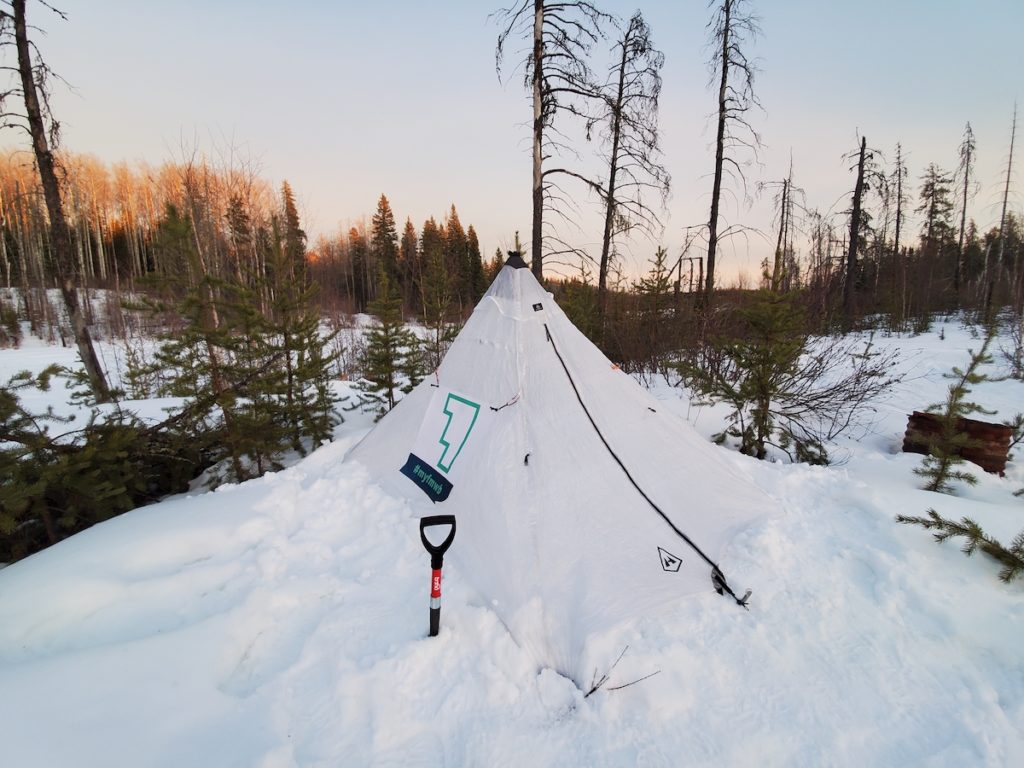
Of course, none of the things I worried about came to pass. Instead, I learned the most profound thing about myself and my journey thus far as an endurance athlete.
And it all started with the word “we”.
Over the course of the run, each time my photographers pulled out their cameras for an update, I kept saying “we”:
“We have 20 more kilometers to go…”
“We made the choice to end the day early…”
“We’re going to finish the Stony Mountain loop and then continue on…”
The photographers kept correcting me: “No one else is doing this… let’s go again, but this time, say ‘I’.”
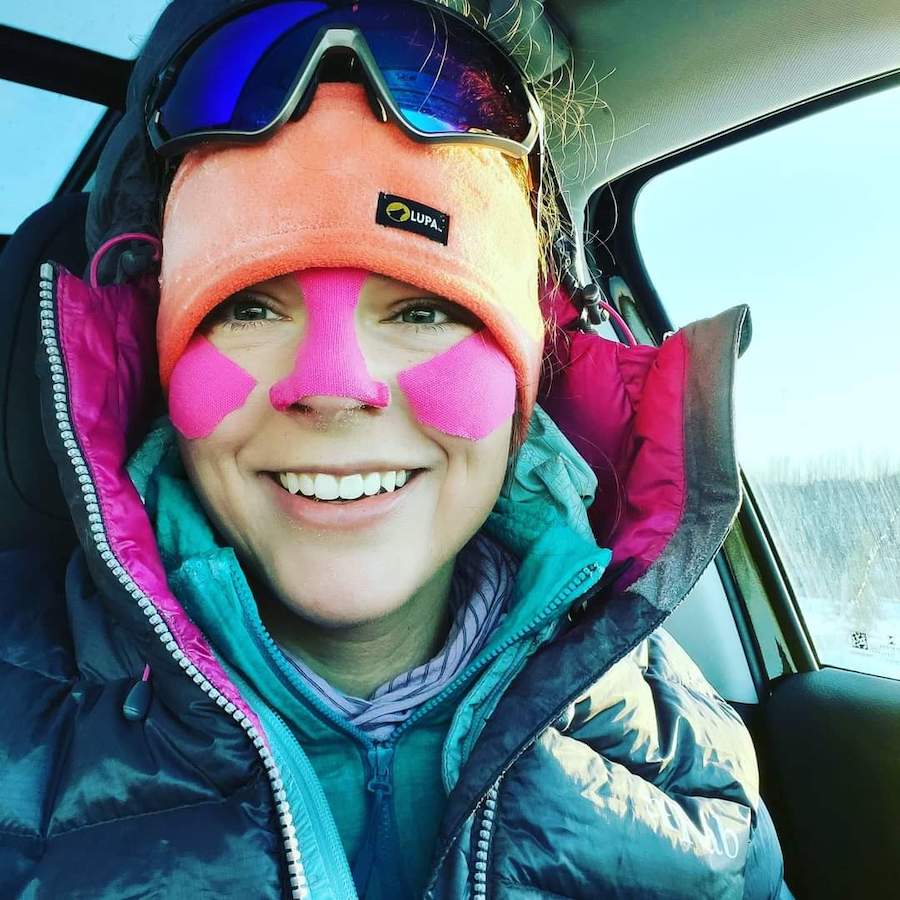
Over the many kilometers of snowy boreal forest trail, I had time to reflect on this. I traced the habit back to my career in a male dominated industry, and my perpetual inability as a female to accept credit or value my contributions as much as a man might. As women, we are raised not to stand out or self-promote. We don’t want to come across as self-aggrandizing or pushy. In this environment, the word “we” is safe. “We” shrouds me in a veil of teamwork, whether or not I acted alone. It obscures the personal pronoun “I” away in a safe place, where it won’t attract attention.
I had to stop myself and remember everything it had taken to get there, both the good and the bad. My journey was NOT always easy. I had failed overnights, rookie mistakes, cold weather mishaps, and consistently battled self-doubt. And yet I still gathered the strength to complete what I had set out to do.
These powerful experiences are invalidated when I minimize the outcome or refuse to acknowledge my accomplishment and stand outside of “we”. WE did not finish a solo self-supported 200km ultra through the backwoods of Alberta. I did.


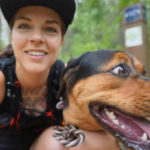
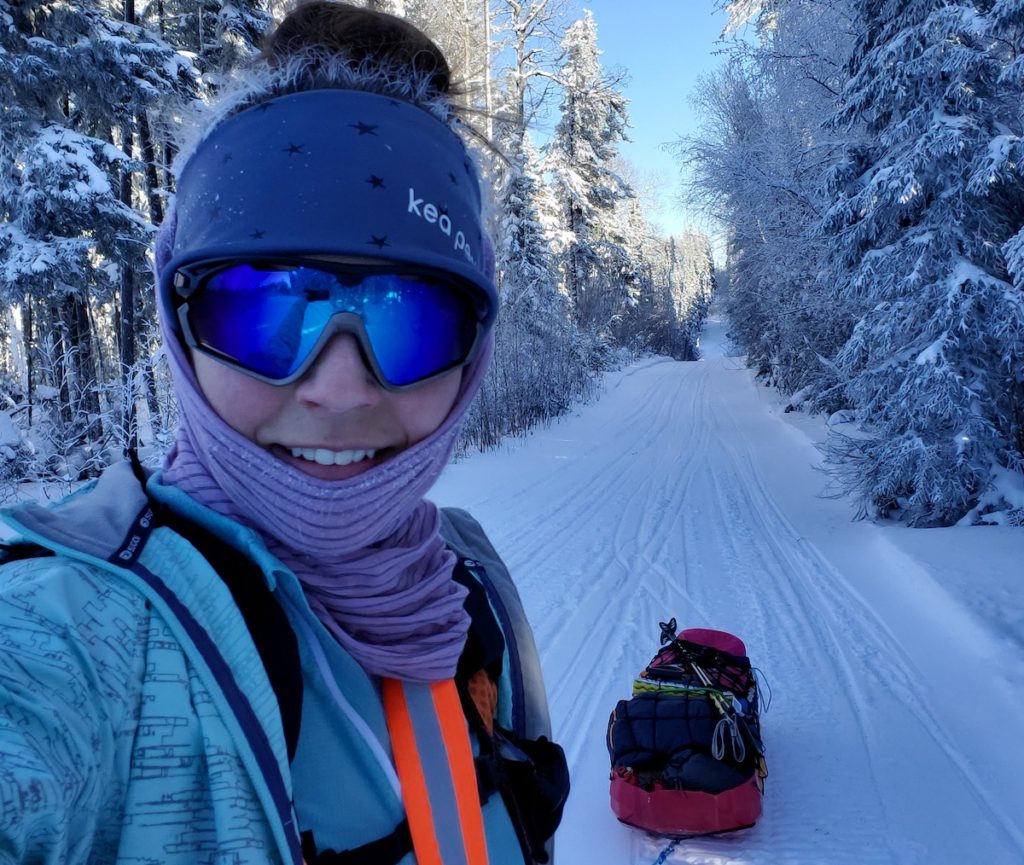
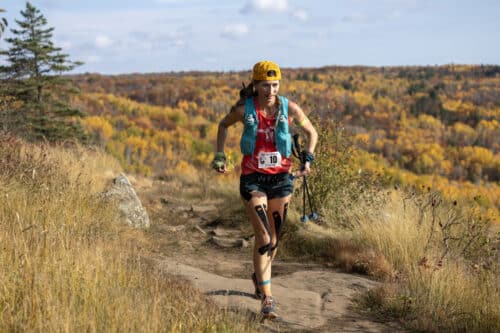
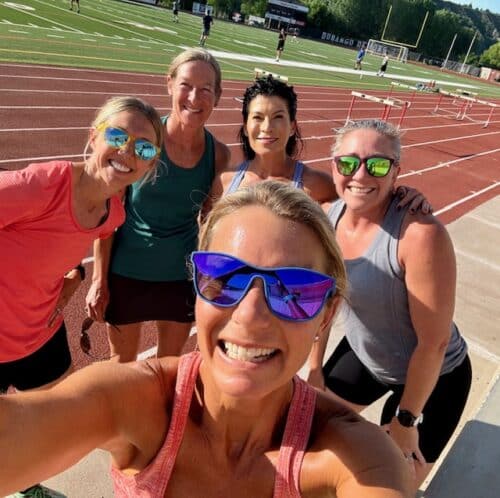


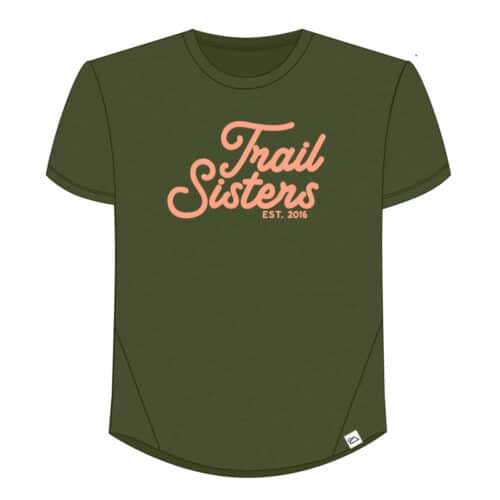
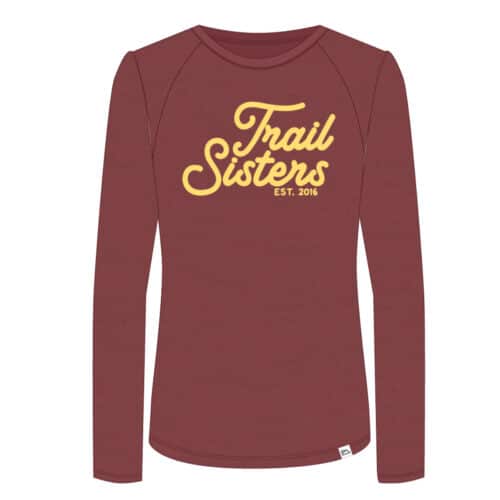
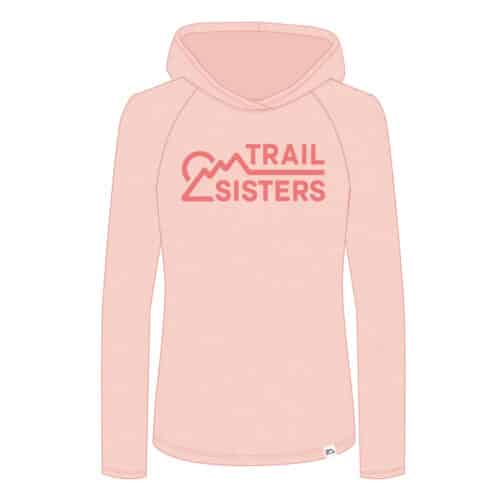
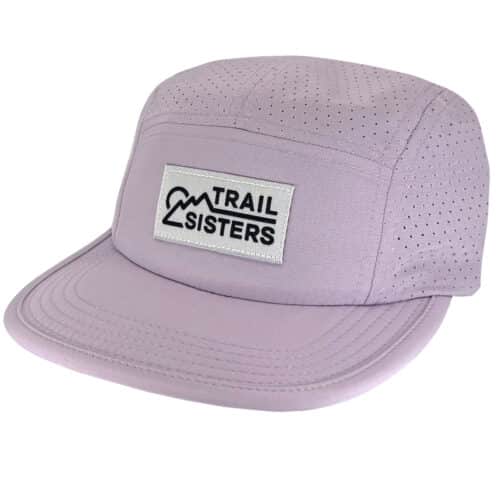
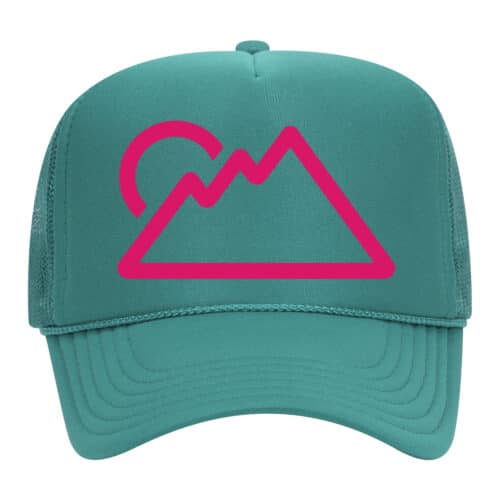
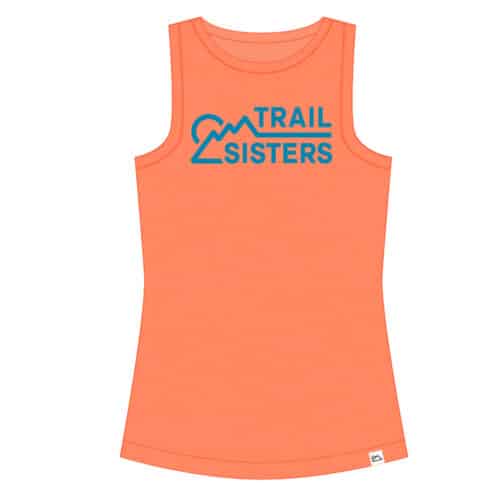


2 Responses
Amazing journey and accomplishment! Thank you for sharing this.
Congratulations on your accomplishment and on owning your achievement. I came to the ‘I vs We’ realization late in life (I’m 68.) While it is a regret I know it was a learned behavior as well as a survival technique. Working in male dominated jobs if I used ‘we’ the implication was that a man was involved in the thought/idea so it must be at least worth exploring. Using ‘I’ was like an instant invisibility cloak. No discussion, no support. I finally realized the behavior was so ingrained that even when I started running marathons at age 63, I was still doing it! I stopped immediately and it has been liberating. So to all women young and old, own your ideas and accomplishments. You need to celebrate yourselves and young girls need to hear it and learn by example how to own their accomplishments.